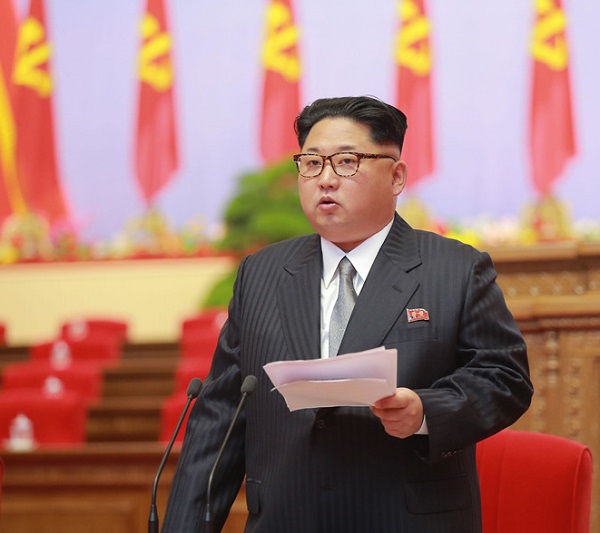

Follow us on:  
|


File photo of North Korean leader Kim Jong Un [Xinhua]
Trump has for several months reiterated that he would talk with adversaries and, in North Korea’s case, persuade them to denuclearize.
While Trump’s accepting Kim Jong-un’s invitation surprised many political pundits in Washington, it has been welcomed with a sigh relief around the world, chiefly in Asia.
South Korea’s Moon Jae-in said the anticipated meeting is “miraculous”.
Perhaps. But if Trump does meet with Kim Jong-un it will be the first time a sitting US President has met a North Korean head of state.
Former President Jimmy Carter has met with senior North Korean officials at least three times since 1994; former US Secretary of State Madeline Albright met with Kim Jong-un’s father during the second Clinton administration in 2000.
But in the past 18 years, the standoff between Pyongyang and Washington has grown much more complicated as the North Koreans appear to have significantly enhanced the ballistic missile technology and tested a number of nuclear detonations.
According to news reports, North Korea is willing to discuss denuclearization. But US Vice-President Mike Pence said that the US has made and will make no concessions to North Korea.
Some American legislators say the White House should up the ante on sanctions, putting to the North Korean invitation to talk as a sign Trump’s foreign policy is working.
Nonetheless, the Chinese Foreign Ministry welcomed Trump’s announcement and appreciated his efforts to deescalate tensions on the Korean Peninsula.
It said bold political decisions and restraint were need from both sides to ensure the success of the talks, but that the face-to-face meeting was only a first step.
“China will continue to make unremitting efforts toward this outcome,” the ministry said.
On Friday, Trump called Chinese President Xi Jinping to discuss the anticipated talks with Kim Jong-un.
Xi told Trump that he appreciated Trump’s resolve to find a peaceful resolution to tensions with North Korea.
“I believe that as long as all parties adhere to the general direction of political and diplomatic settlement, we will surely push forward the Korean Peninsula issue in the direction that the international community has been looking forward to,” Xi said.
China has in recent months pressured both North Korea and the US to tone down the war rhetoric, which reached its apex at the end of 2017.
Venue: China?
The quick pace of diplomatic back-and-forth came as a thaw between the two Koreas during the Winter Olympics led to direct talks between the North and the South.
During the Winter Games in PyeongChang, South Korea, the North not only sent an athletic delegation which participated as a united Korean team, but also halted all missile tests.
In return, South Korea and the US postponed their routine military drills – which has always drawn the North’s ire – till April.
The two Korean leaders will meet some time in April along the demilitarized zone.
However, a Kim-Trump meeting is more complicated. The US is likely to want to hold the meeting either in South Korea or Swizterland.
The North Koreans are likely to insist on Pyongyang as the host city for the meeting, particularly since Kim Jong-un rarely leaves his country.
The Americans are likely to nix that idea.
And this is where China’s central mediation comes through. Both the US and North Korea would find a Chinese venue as opportune, with Beijing reaping all the diplomatic accolades.
By Firas Al-Atraqchi for The BRICS Post with inputs from Agencies